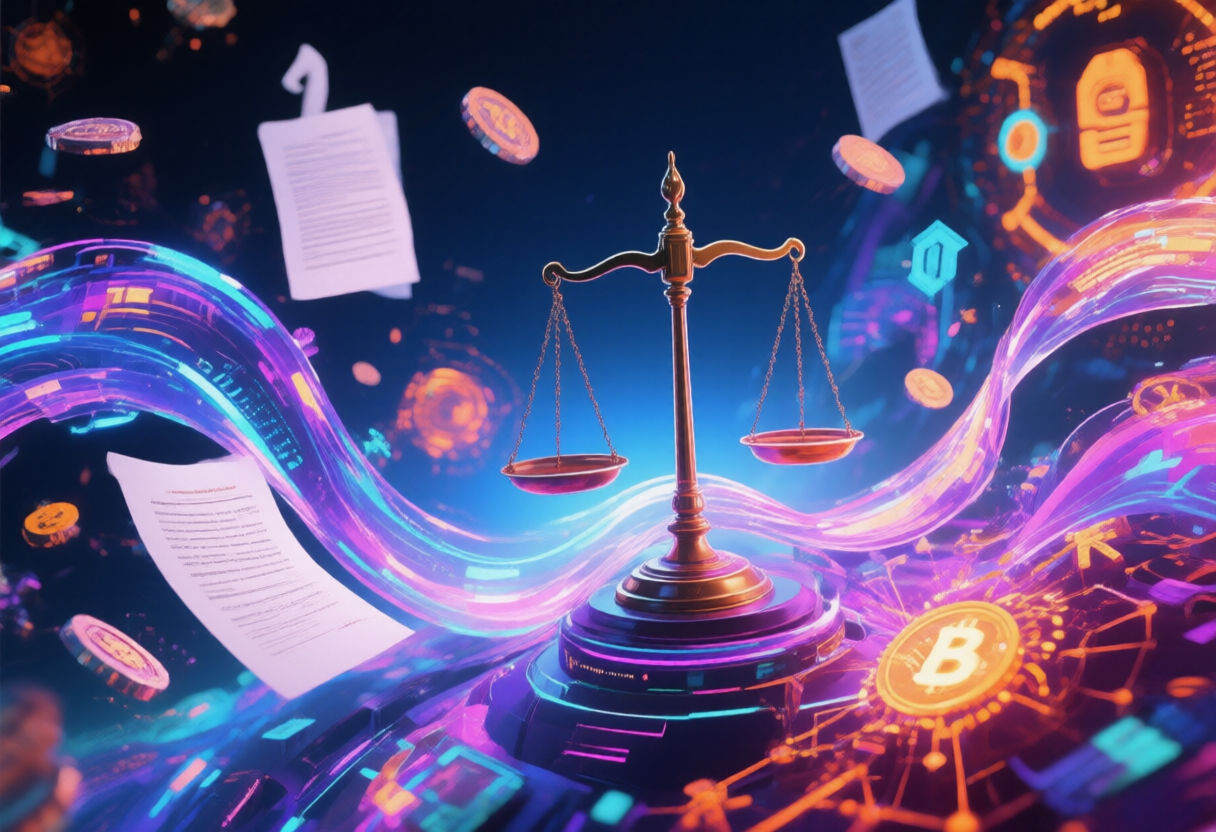
tl;dr
The Madras High Court ruled that cryptocurrency is property under Indian law, blocking WazirX from reallocating user assets during insolvency. The decision sets a global precedent, aligning India with jurisdictions like the U.S., U.K., and Singapore in recognizing crypto as protectable assets.
**Indian Court Recognizes Cryptocurrency as Property, Sets Precedent for Global Crypto Regulation**
In a landmark ruling, the Madras High Court has declared that cryptocurrency qualifies as property under Indian law, prohibiting the crypto exchange WazirX from reallocating a customer’s XRP holdings. The decision, delivered by Justice N Anand Venkatesh on October 25, 2023, establishes a critical precedent that could reshape how exchanges manage user assets during insolvency proceedings, both in India and beyond.
### The Case at Hand
The court intervened in a dispute involving Rhutikumari, a customer who transferred funds from her Chennai bank account to purchase 3,532.30 XRP coins on WazirX. The exchange sought to redistribute these assets as part of a restructuring plan overseen by Singapore’s High Court following a hack that halted withdrawals. However, the Madras High Court granted an interim injunction, barring WazirX from reallocating the XRP.
Justice Venkatesh emphasized that cryptocurrency is not a speculative transaction but a "virtual digital asset" capable of being "enjoyed, possessed, and held in trust," citing Section 2(47A) of India’s Income Tax Act. This interpretation directly challenges WazirX’s argument that the Singapore court had jurisdiction over the matter.
### Jurisdiction and Legal Reasoning
WazirX contended that the arbitration process was governed by Singapore’s legal framework, given the exchange’s headquarters and the restructuring scheme supervised by the Singapore High Court. However, the Madras court rejected this claim, noting that Rhutikumari’s funds originated in India, and her access to the platform occurred domestically. This established a territorial nexus, affirming the court’s jurisdiction.
The ruling also distinguishes cryptocurrency as a "distinct property right" rather than an unsecured claim in bankruptcy. This classification could limit exchanges’ ability to redistribute user assets during financial distress, prioritizing individual ownership over pooled insolvency mechanisms.
### Global Context and Implications
The Madras High Court’s decision aligns India with jurisdictions like the United States, United Kingdom, and Singapore, where crypto is increasingly recognized as property. For instance:
- **United States**: Courts issue temporary restraining orders (TROs) and freeze wallets under civil forfeiture statutes. The Celsius Earn case highlighted how contractual structures (e.g., "earn" programs) can affect user rights.
- **United Kingdom**: English courts grant proprietary injunctions and disclosure orders against exchanges, even overseas, as seen in cases like *AA v Persons Unknown* and *Fetch.ai v Persons Unknown*.
- **Singapore**: Courts have recognized NFTs and tokens as property, with cases like *Bybit v Ho Kai Xin* affirming crypto’s trust-like status.
India’s ruling adds a unique layer by explicitly framing crypto as "capable of being held in trust," a concept that could influence future legal frameworks. The decision also underscores the importance of user custody arrangements, with customers holding assets in proper custodial structures (e.g., as bailees) faring better than those in omnibus accounts.
### Comparative Jurisdictions: Crypto Property Recognition and Legal Remedies
| **Issue** | **India** | **United States** | **United Kingdom** | **Singapore** |
|--------------------------|------------------------------------------------|------------------------------------------------|------------------------------------------------|------------------------------------------------|
| **Is crypto “property”?** | Yes; "capable of being held in trust." | Yes (tax/property; courts issue TROs, seizures). | Yes; courts treat crypto as property supporting proprietary relief. | Yes; recognized across tokens and NFTs; can be held on trust. |
| **Can courts stop exchanges?** | Yes; interim injunction barred WazirX from reallocating XRP. | Yes; via TROs and constructive-trust theories. | Yes; proprietary injunctions and disclosure orders bind exchanges. | Yes; Mareva relief and disclosure orders granted. |
| **Notable limits** | Court asserted jurisdiction despite Singapore scheme; framed assets as trust property. | If ToS transfers title (e.g., yield/earn), users may be unsecured creditors. | Some injunctions discharged on facts; relief is case-specific. | Strong on property/trust, but outcomes hinge on facts and contracts. |
### Broader Impact
The Madras ruling could compel exchanges to adopt more transparent custody practices and prioritize user property rights during insolvency. It also signals that Indian courts may assert jurisdiction over crypto assets funded domestically, regardless of where corporate restructuring occurs.
As global regulators grapple with crypto’s legal status, this decision reinforces a trend toward protecting user assets as property. With India joining the ranks of jurisdictions that recognize crypto’s proprietary nature, the ruling may inspire similar frameworks worldwide, ensuring users retain control over their digital assets amid financial uncertainty.
The case marks a pivotal moment in crypto law, balancing innovation with the need for robust legal safeguards. As Justice Venkatesh’s judgment clarifies, "cryptocurrency is not merely a transaction—it is a right."